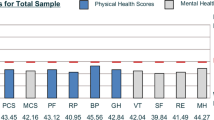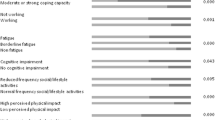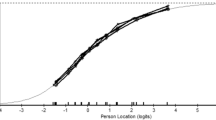Abstract
The aim was to investigate factors associated with depression and social function, two outcomes identified as important by people with multiple sclerosis (MS) and to identify underlying dimensions of psycho-social well-being that may be useful as outcome measures. People with MS in eight randomly selected health authorities/boards in England and Scotland completed a postal questionnaire relating to preferences and needs for their health and social care, along with the Beck Depression Inventory and the SF-36. Responses to 10 of the original items were subjected to factor analysis. These and other explanatory variables were entered into multivariable regression models for the two outcomes. The factor analysis resulted in three dimensions representing different aspects of psycho-social well-being; one of these (representing autonomy) was associated with improvements in both outcomes, as was the SF-36 emotional role limitation score. Three other SF-36 dimensions and lack of contact with a health professional in the last year were related just to social function. The regression models emphasise the value of enabling autonomy and self-reliance amongst people with MS, as well as more general measures of emotional health. The present work identifies specific questions that could be used to measure pivotal aspects of an individual's psycho-social well-being. While these findings warrant replication for people with MS, they may have relevance to those with other long-term illnesses.
Similar content being viewed by others
References
Vercoulen JHMM, Hommes OR, Swanink CMA, et al. The measurement of fatigue in patients with multiple sclerosis. Arch Neurol 1996; 53: 642–649.
Scott T, Allen D, Price T, McConnell H, Lang D. Characterization of major depression symptoms in multiple sclerosis patients. J Neuropsychiat 1996; 8: 318–323.
Barak Y, Kimhi R, Bodner E, Achiron A. Treatment of depression in patients with multiple sclerosis. The Neurol 1998; 4: 99–104.
Freeman A, Thompson AJ. Community services in multiple sclerosis: Still a matter of chance. J Neurol Neurosur Psychiat 2000; 69: 728–732.
Levenson R, Joule N. Improving People's Lives: The Agenda for People with Long-Term Medical Conditions. LMCA, 1999.
Somerset M, Sharp D, Campbell R. Multiple sclerosis and quality of life: The development of a framework by which to identify needs. J Health Serv Res Policy (in press).
Somerset M, Campbell R, Sharp DJ, Peters TJ. What do people with MS want and expect from health-care services? Health Expectations 2001; 4: 29–37.
Mohr D, Goodkin D, Likosky W, Beutler L, Gatto N, Langan M. Identification of Beck depression inventory items related to multiple sclerosis. J Behav Med 1997; 20: 190–197.
Hakim EA, Bakheit AM, Byrant TN, et al. The social impact of multiple sclerosis-a study of 302 patients and their relatives. Disabil Rehabil 2000; 22(6): 288–293.
Ware J, Snow K, Kosinski M, Gandek B. Health Survey Manual and Interpretation Guide. Boston, MA: New England Medical Centre, 1993; 6–22.
Freeman JA, Hobart JC, Langdon DW. Clinical appropriateness: A key factor in outcome measure selection; the SF-36 item short form health survey in multiple sclerosis: J Neurol Neurosurg Psychiat 2000; 68: 150–156.
Freeman JA, Hobart JC, Thompson, AJ. Does adding MSspecific items to the generic measure (the SF-36) improve measurement? Neurology 2001; 57: 68–74.
Beck A, Beamesderfer A. Assessment of depression: The Depression Inventory. Pharmacopsychiatry 1974; 7: 151–169.
Streiner D, Norman G. Health Measurement Scales. Oxford: Oxford Medical Publications, 1993.
Stata Corp. Stata Statistical Software: Release 6.0. College Station, TX: Stata Corporation, 1999.
Antonak RF, Livneh H. A hierarchy of reactions to disability. Int J Rehabil Res 1991; 14: 13–24.
Hainsworth M. Living with multiple sclerosis. J Neurosci Nurs 1994; 26: 237–240.
WHOQOL. Measuring Quality of Life. The Development of the World Health Organisation Quality of Life Instrument (WHOQOL). Geneva: WHO Division of Mental Health, 1993.
Shnek Z, Foley F, LaRocca N. Helplessness, self-efficacy, cognitive distortions, and depression in multiple sclerosis and spinal cord injury. Ann Behav Med 1997; 19: 287–294.
Author information
Authors and Affiliations
Rights and permissions
About this article
Cite this article
Somerset, M., Peters, T.J., Sharp, D.J. et al. Factors that contribute to quality of life outcomes prioritised by people with multiple sclerosis. Qual Life Res 12, 21–29 (2003). https://doi.org/10.1023/A:1022088203586
Issue Date:
DOI: https://doi.org/10.1023/A:1022088203586




